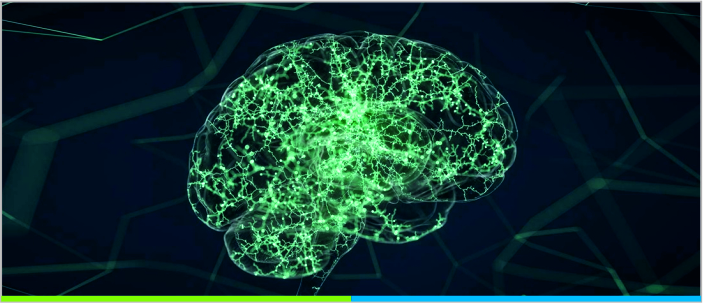Early Warning Signs of Brain Tumours and Treatment Importance

Brain tumours are severe medical conditions that can affect anybody at any stage of life. Primary brain tumours begin their growth in the brain. Cancer can also spread directly to the brain from other areas of the body; these are commonly referred to as secondary brain tumours or metastatic brain tumours. Therefore, it is essential to ensure that patients suffering from brain tumours seek medical help early enough to enhance the efficiency of the treatment.
This article will provide general information on the signs and symptoms of brain tumours, common brain tumours like the Acoustic Neuroma and Glioma, and the benefits associated with early treatment.
Common Early Warning Signs of Brain Tumours
Early detection of the signs and symptoms of a brain tumour helps in early diagnosis and treatment. The symptoms can differ from person-to-person depending on the location, size, and type of the tumour. Here are some of the common early signs of brain tumour:
- Persistent Headaches: One of the most common early signs of a brain tumour is persistent headaches. These headaches may differ from usual headaches in intensity, frequency, and response to pain relievers. They can become worse in the mornings or when doing activities, such as coughing or bending over.
- Changes in Vision or Hearing: Brain tumours can affect the senses, particularly vision and hearing. For instance, a tumour like an acoustic neuroma, which grows on the nerve that connects the ear to the brain, can cause hearing loss, ringing in the ears (tinnitus), and balance problems. Other tumours may cause double vision, blurred vision, or loss of peripheral vision.
- Seizures: Seizures that occur suddenly and without a history might be a big sign of a brain tumour. Seizures are caused by abnormal electrical activity in the brain and may manifest as convulsions or unusual sensations.
- Nausea and Vomiting: These are the two most common signs of brain tumours, and they usually occur in the early hours of the day. The mechanisms by which these occur are due to increased pressure inside the brain, but in most cases, headache or dizziness also accompany it.
- Weakness and Numbness: Weakness or tingling in the arms and legs can indicate a brain tumour caused by impingement on the areas of the brain controlling movement. In severe cases, it causes trouble with coordination and balance, sometimes even paralysis.
- Cognitive and Behavioral Changes: Brain tumours can alter cognitive functions and behaviour; they can lead to memory loss, confusion, lack of concentration, mood swings, and personality changes. Such symptoms often go unseen at the beginning but become more apparent as the tumour grows.
Specific Types of Brain Tumours
Different brain tumours manifest themselves with various symptoms and require different modes of treatment. Acoustic neuroma and glioma are two prominent types of brain tumours.
- Acoustic neuroma is a slow-growing and normally non-cancerous type of tumour, but its location can cause many issues. Symptoms include hearing loss, tinnitus, loss of balance, facial numbness, and others.
- The location and size of a glioma brain tumour might affect the tumour’s symptoms. However, headaches, seizures, decreased cognition, and motor function issues are often present.
The Importance of Early Detection and Treatment
Detecting and treating brain tumours early is important; early diagnosis will raise the quality of outcomes and increase the chances of successful brain tumour treatment. Here’s why detection and treatment are vital:
- Better Prognosis: Early diagnosis ensures a better prognosis. This would especially be the case when dealing with malignant tumours. Early treatment serves to retard the growth of the tumour, reduce symptoms, and improve the quality of life of the patient.
- Reduced Complications: Timely treatment of brain tumours can prevent complications such as neurological damage, which can occur if the tumour is left untreated. For example, an untreated acoustic neuroma can lead to permanent hearing loss, while an untreated glioma can lead to significant cognitive and motor impairments.
- More Treatment Options: When the brain tumour is detected at a very early stage, more treatment options can be explored. Treatment options for brain tumours include surgery, radiation therapy, chemotherapy, and targeted therapy. If diagnosed at an early age, the treatment could be less invasive and, thus, a combination of therapies tailored individually to the patient’s needs.
- Psychological Support: This helps patients and their families get timely and appropriate psychological and emotional support services that will help them cope better with the diagnosis and treatment. Early awareness will also facilitate communication with support groups and active discussion with the healthcare professional.
- Improved Quality of Life: Brain tumours, however, can greatly impact the quality of life. Acoustic neuroma requires early treatment not only to manage symptoms but also to reduce the effect of the tumour on day-to-day life. This is the case with benign brain tumours like acoustic neuroma that could turn life into a real issue if left untreated, although it is not cancerous.
Conclusion
A brain tumour is a critical health condition that requires urgent attention. Early diagnosis plays a huge role in treating patients and their prognosis. Only through recognition of symptoms and signs and quick response to medical consultation can timely diagnosis and numerous ways of treatment be considered. If you are experiencing above-mentioned signs of brain tumours, consult a doctor as soon as possible.
This article has been medically reviewed by Dr Vara Prasad, Neuro Surgeon
